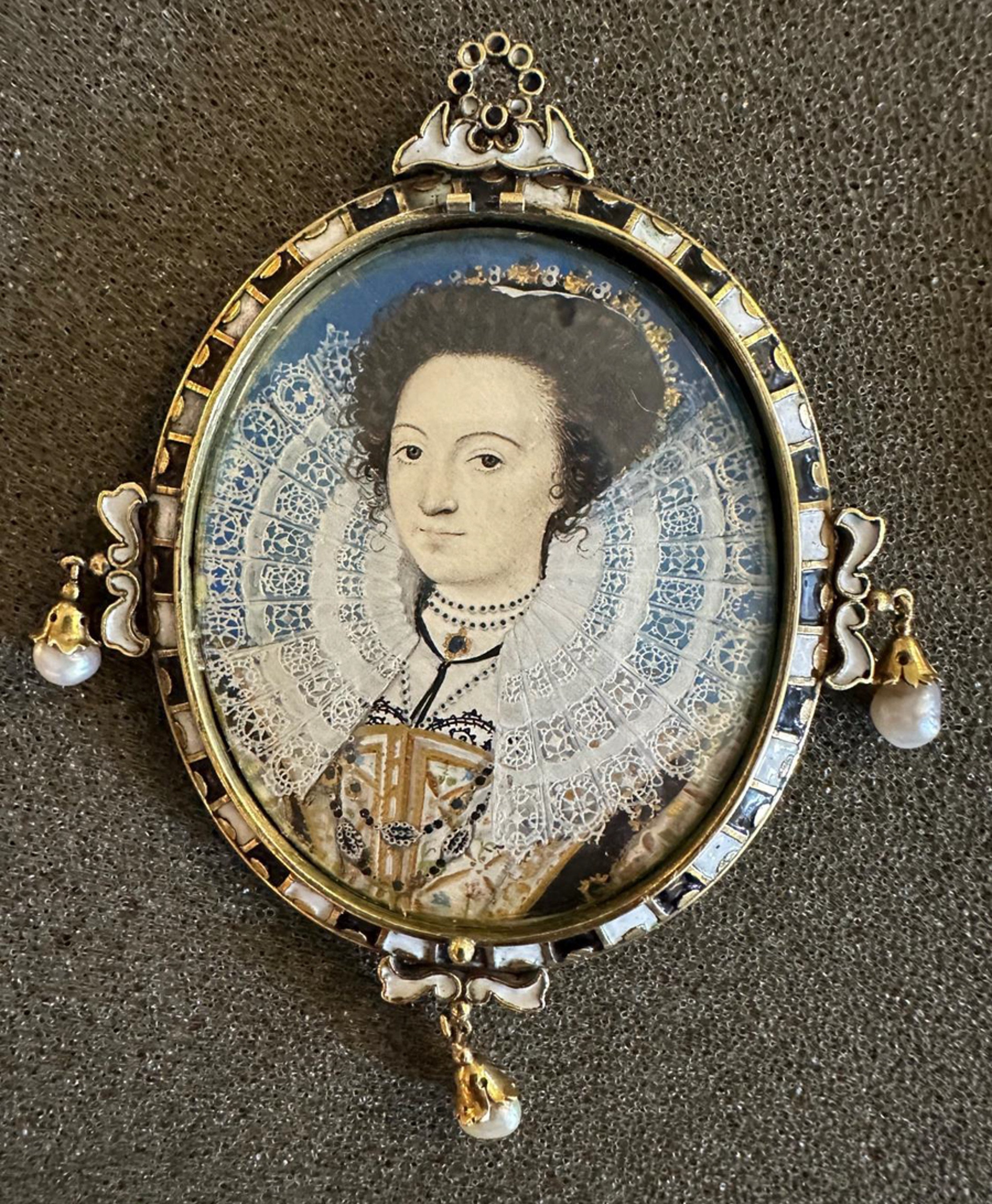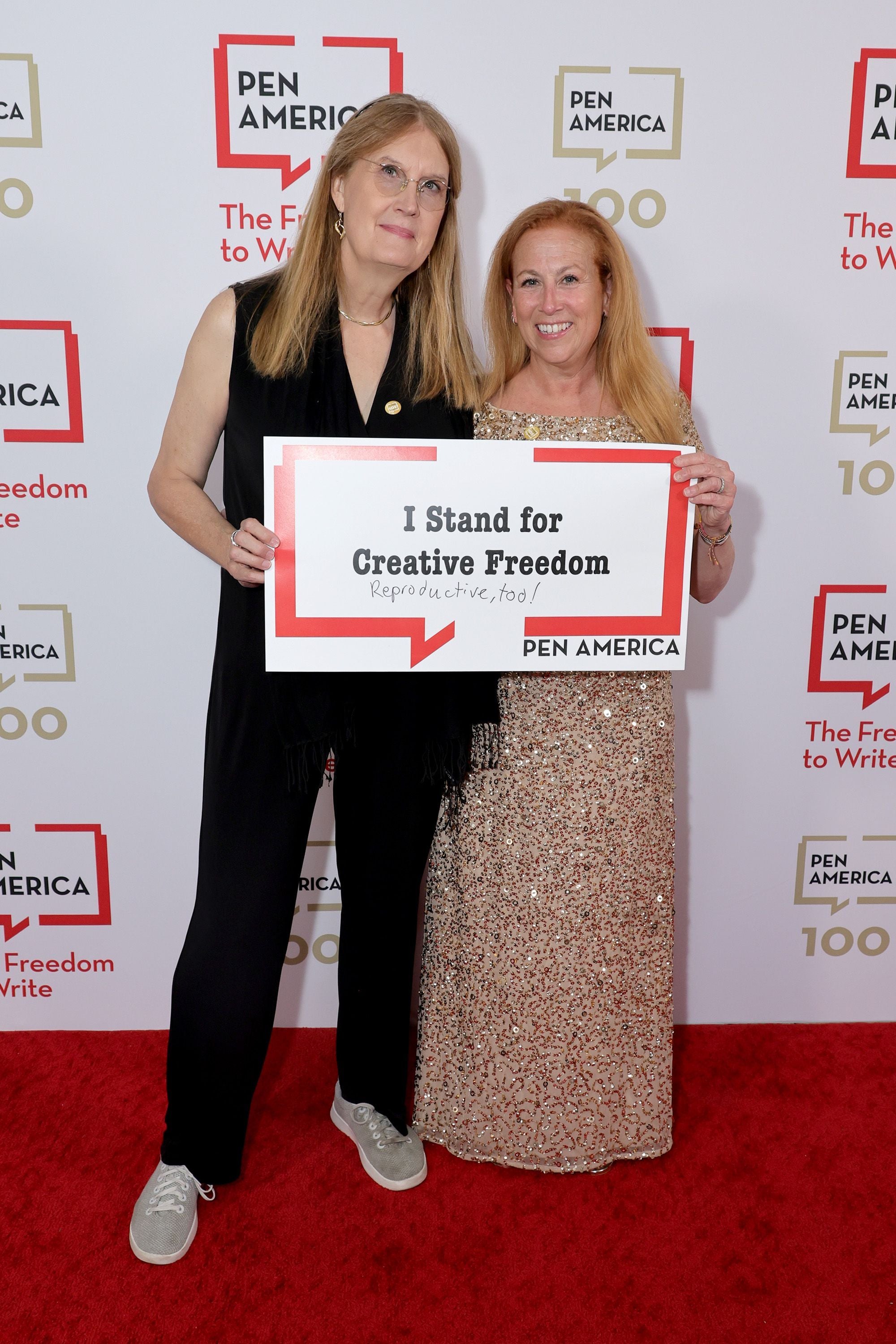Bestselling novelist Jodi Picoult on why she thinks Shakespeare was a woman
Did William Shakespeare write his plays? Novelist Jodi Picoult doesn’t think so and tells Claire Allfree why she has chosen her new novel to look at the evidence that suggests otherwise – and how she refuses to stop tackling difficult subjects despite 35 American states banning her books

I’ve been called a crackpot and a conspiracy theorist,” says the author Jodi Picoult. “I’ve had old white men grumbling about me on blog posts and emeritus professors in America email me to tell me I am dead wrong. Of course, none of them offers any proof. And in many instances, it’s quite clear they haven’t read my book.”
Picoult tells me this with the cheery eye roll of a woman who is not about to let a chippy comment from a man spoil her day. The book in question is By Any Other Name, Picoult’s first foray into historical fiction and a novel that had already got feathers ruffled before it was even published.
In it, Picoult argues that Shakespeare didn’t write his plays after all; that instead the real author was a woman of likely Jewish heritage called Emilia Bassano. Bassano – the subject of the 2018 West End hit play Emilia – is a known historical figure who published the pamphlet Salve Deus Rex Judaeorum in 1611, making her Britain’s first published female poet; she is also regarded as Britain’s first feminist writer because of the radical gender politics contained within her verse. Some academics also believe her to be the “Dark Lady” of Shakespeare’s sonnets.
Picoult’s novel, which is as breezy and readable as any of her previous works despite its erudite subject matter, stakes a far greater claim: that this ambitious daughter of a highly musical and well-connected Venetian family – Bassano’s father was a musician at the court of Elizabeth I; she herself was the mistress of the Lord Chamberlain for 10 years from the age of 13 – had access and knowledge that makes her a much more plausible author of the Bard’s canon than a Stratford-born businessman called Will Shakespeare.
I have met Picoult for coffee at, suitably enough, a cafe at Somerset House where the teenage Bassano lived for several years with the Lord Chamberlain. The American author is gregarious, bubbly and radiates conviction. If she has any trepidation about taking on the commanding mythology of Shakespeare on his home turf, she doesn’t show it. “If you look at the evidence for him writing the plays, it doesn’t stack up,” she says.
“We have only six extant signatures, which don’t match. The only other evidence of his handwriting is found on the manuscript for the Elizabethan play Sir Thomas More [written by Anthony Munday and Henry Chettle and to which Shakespeare is believed to have contributed]. There are no contemporaneous references to him as an actual playwright. His plays reflect knowledge of other countries and languages we know he can’t possibly have had. There are no rough drafts of his work – Heminges and Condell who produced the First Folio [the first printed collection of Shakespeare’s plays, published in 1623], argue he never produced such things. Yeah, right. The more I looked into it, there are all these gaps all over the place.”
Debate has raged for nearly two centuries over whether Shakespeare is the true author of his plays. The anti-Stratfordians, as they are collectively known, and whose more notable members include Mark Twain and more recently, the Shakespeare actor and former Globe artistic director Mark Rylance, resist the idea that a single figure, particularly one of such poor education as Shakespeare – who many believe never left England – could have produced so many masterworks. They variously argue instead that Shakespeare either extensively collaborated, or that the name Shakespeare was a pseudonym to disguise an author or group of authors who either didn’t want to be identified or whose social rank meant they were unable to write under their real name. Chief among these contenders are Francis Bacon, Christopher Marlowe, and William Stanley, sixth Earl of Derby. Most serious academics dismiss the theory as a fringe idea at best.
But it’s the idea that the true author of Shakespeare might have been a woman, says Picoult, that gets the academics properly angry. “It’s misogyny, absolutely,” she says. Certainly she has found some of her encounters frustrating. “Some of the experts I spoke to were perfectly nice but there was also an attitude of ‘Aren’t you cute’. There’s definitely a sense of ‘You have a good time, darling’. It’s easy to call someone a whack job. But we know women were writing at the time of Shakespeare. All I’m saying is we’ve looked at this from one angle for 400 years. Wouldn’t it be interesting to look at it from another?”

Picoult was inspired to write By Any Other Name after reading a 2019 piece in The Atlantic by the journalist Elizabeth Winkler that set out the case for Bassano. She has certainly done her research. By Any Other Name, which intersperses Bassano’s story with that of Melina, a present-day female descendent attempting to mount a play about Bassano’s life, teases out several tantalising links between Bassano’s known experience and the Shakespeare canon with audacious vivacity.
Where Shakespeare’s own lived experience is found lacking, Bassano pops up to fill the gap. Her Italian heritage, for instance, provides a handy explanation for the reference to sycamore groves in western Verona that appear in Romeo and Juliet: how Shakespeare could have known this particular detail is a matter of scholarly dispute. Picoult cites Othello, of which two versions exist: the second one, published in the First Folio after Shakespeare’s death, gives the character Emilia, Iago’s wife, a searing feminist speech that echoes many of the sentiments in Bassano’s poem (the name Emilia pops up in several Shakespeare plays: it’s a matter of scholarly interest whether Bassano was Shakespeare’s muse). Bassano has biographical links to the court of Denmark, and to a square in Italy with a fresco which, Picoult argues, Iago quotes from in Othello.
And, Picoult says, who else but a woman who became an older man’s mistress at the age of 13 could have written Romeo and Juliet, which “is all about a 13-year-old about to embark on a sexual relationship”? “I’m not saying Emilia wrote every play,” she says. “And her published poetry is pedantic compared to the language of the plays. But I also think she was smart enough to hide herself when she needed to. I’m not picking a fight with the plays themselves, but I am taking on the myth of a man who has been canonised into a religion.”

Picoult, 58, is the author of 28 books and first began writing by publishing short stories in Seventeen magazine while she was still at college. Her first novel to top The New York Times bestseller list was 2007’s Nineteen Minutes, about the aftermath of a school shooting. Many of her books tackle similarly hard-core subjects: My Sister’s Keeper is about sibling organ donation; House Rules confronts disability and the justice system. Yet she believes By Any Other Name is the book she was born to write. “I’ve spoken out very often in my career about gender discrimination in publishing,” she says. “And the fact that women were unable to write publicly in Elizabethan England is to me a clear case of gender discrimination.”
In the UK I’m often called a chick lit writer. I don’t write chick lit!
Four hundred years on and much has changed but also, she says, not enough. The novel’s present-day character, Melina, who struggles to get the New York theatre scene to take her play seriously, is partly an avatar for Picoult, who has had a similar bruising experience as a librettist for the 2022 off-Broadway musical Between the Lines, based on her YA novel of the same name. “I was shocked to learn how male-dominated the scene is,” she says. “The gatekeepers of Broadway are literally a couple of old white men. It’s definitely an uphill struggle, and women who complain are said to be difficult.”
She detests the way she is still described as a “women’s writer”. “In the UK I’m often called a chick-lit writer. I don’t write chick-lit! It doesn’t demean me, but it does demean the people who define a woman who picks up a pen in that way. I’ve lost count of the number of times that people, when they find out I’m a writer, assume I write children’s books or romances.” I point out huge change has occurred recently around the perception of fiction written by women: for one thing this year’s Booker shortlist contains an unprecedented five female authors. “Yes, but show me the publishing conglomerate that is run by a woman,” she retorts. “We’re not there yet.”

She is waging a battle of an entirely different sort in America’s conservative heartlands. In a country convulsed by moral panic over what children should be reading, Picoult has found her novels banned in 35 states because of their reference to subjects such as sex and abortion.
“Even in places such as California there are conservative pockets. It’s Christian fascism. My novel Nineteen Minutes, which is about a school shooting, is banned in Iowa, not because it talks about gun crime but because it contains the word ‘erection’. In 2007, it was on the school curriculum.” She draws comparisons with the Puritans, who in the 17th century would stage protests outside theatres in America. “We are back in a point where a tiny group of people get to control what other people read and write. It’s exactly what was happening 400 years ago.”
But she, alongside other authors and the industry itself, is fighting back. “Random House is launching a lawsuit in Iowa. Pen America [the charity that fights for the free speech of writers] is keeping track of what is being banned.” As with the case of women’s rights, the oppressed, she says, need the powerful to speak up. “By Any Other Name is definitely a girl power book, but it is also full of male characters who champion the women. That’s the future. The minute the person at the top of the feeding chain says, ‘Oh, you are right’, everyone listens.”
‘By Any Other Name’ is out now, published by Penguin Michael Joseph
Join our commenting forum
Join thought-provoking conversations, follow other Independent readers and see their replies
Comments
Bookmark popover
Removed from bookmarks